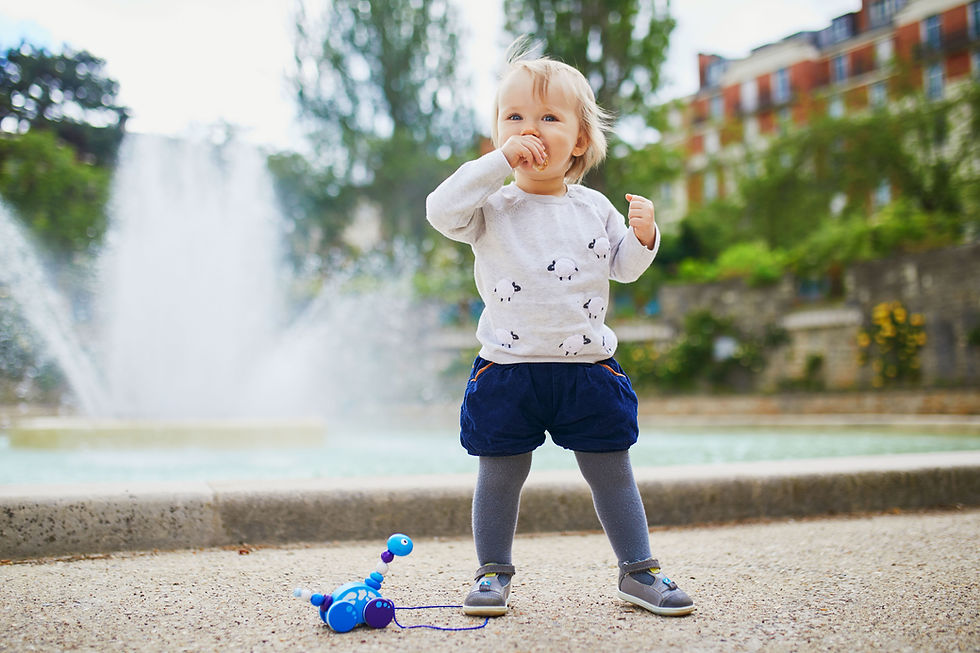18 Month Milestones Checklist
- Dr. Hughes, The Pediatric Mama

- May 17, 2021
- 3 min read
My Baby is 18 Months Old: What should he/she be able to do?

Can you believe your little newborn baby...is almost 2 years old now and is growing and changing every day!?!? Here are the things you should expect your child to do by 18 months of age.
By 18 months of age, your child should be able to:
Gross Motor/Physical Movement
Walk (every child should be walking by this age)
If your child has already been walking for months, should have improved walking and may run
May try to kick a ball
Can pulls toy behind while walking
Can drink from a sippy cup and begins to drink from a cup with no top (or a water bottle)
Begin to eat correctly (but still making mess) with a spoon/fork
Fine Motor/Hand-Eye Coordination
Can help get themselves dressed (arms in, legs in)
May be able to remove some clothing on their own (especially socks and diapers)
Can scribble with a crayon (or other writing tool)
Social/Emotional
Play next to, but not necessarily with, peers
Hand things to others during play or points to show others something interesting
May have temper tantrums
May still be afraid of strangers or cling to familiar people
Show affection to familiar people (kisses and hugs)
Language/Communication
Say 5-20 words that you can understand and is adding at least one (understandable) new word a week to their vocabulary
Can say and shake head “no”
Can point to show someone what they want
Cognitive/ Learning & Problem-solving)
Play simple pretend games, such as talking on the phone or feeding a doll
Explore alone (if parent still nearby)
Follow one-step commands without gestures, like “sit down” or "come here"
Point to one body part
If your child is 18 months old and is doing all of these things, great!!

Tips to Help Your Child Reach Their 18 Month Milestones
Play time: Continue to let your child to play with toys and explore indoors and outdoors as regularly as possible. Engage with your child by explaining things in simple terms and showing them how things work. Encourage them to try things on their own and let them explore more and more on their own (while still keeping a close eye on them).
Talk and respond: Talk to your baby as much as possible in plain language. The more language your child hears, the more he/she will pick up as they begin to learn to talk. Respond when your child talks to continue to encourage social and conversational skills. Help to expand your child's vocabulary by pointing to things and stating what the object is and by explaining the world around them, in general.
Read: Continue to read simple books to your child. Your child should be more engaged in the story, especially if there are bright colors, lots of pictures, and funny voices/actions to help tell the story.

When to Be Worried
If your child is already 18 months of age and is not meeting these milestones, talk to your child’s pediatrician. You know your child better than anyone else. If you are concerned your child may have a delay in his/her development, it is better to intervene sooner rather than later. This gives your child the best chance of catching up to his/her peers by the time he or she reaches school age.
Subscribe to be notified of more posts like this!
All content on this website, including medical opinion and any other health-related information is for informational purposes only and should not be considered a specific diagnosis or treatment plan for any individual situation. Use of this website and the information contained does not create a doctor-patient relationship. Always seek the direct advice of your own doctor before starting any specific treatment plan.




Comments